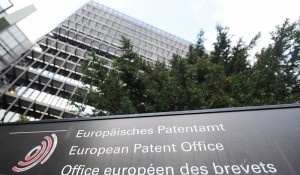09.24.15
German Press Explains EPO Investigation Unit (I.U.), Struggles to Openly Speak to the Secretive EPO
Summary: The secretive Investigation/Investigative Unit (I.U.) of the European Patent Office (EPO) is further studied/explored by a recent article from junge Welt, an old and well-established German newspaper (since 1947)
THE EPO-centric coverage at Techrights is going to become more frequent and intensify because the more the EPO’s management cracks down on dissent (even very legitimate dissent), the more passionate its critics will become. On the face of it, more and more critics come out of nowhere now, even in the media (newspapers, radio, and television). The EPO has become the poster child of European institutions going rogue. The abuse happens on many levels and later today (probably this evening) we will write about EPO abuses that relate not just to (mis)treatment of staff. There are far broader issues at hand and these issues mean that today’s EPO does a huge disservice to European citizens, usually at the behest of very large corporations (many of which are not even European).
“The EPO has become the poster child of European institutions going rogue.”SUEPO has shared another set of translations [PDF] of an article from junge Welt, titled “Juristisches Niemandsland” (we are from now on making local copies of documents, having seen the EPO using threats to remove critical material and muzzle critical voices).
As SUEPO puts it, “junge Welt gives on overview of the current climate at the EPO and the repressive reforms put in place by Mr Battistelli: “Employees have a fake sense of security. Protestors are being spied on and prosecuted.” The article reports on the work of the Investigative Unit: “covert surveillance of public or semi-public computers, no right to remain silent and no right to a legal counsel during interrogations”.
“A member of the Boards of Appeal was suspended over allegations of defamation. Staff representatives and/or union executives are subject to investigations by Control Risks and, among them, Elizabeth Hardon, SUEPO Chair. Freedom of expression and of association are under severe attack and the discussions on union recognition are just a sham and a marketing trick. The Dutch Court of Appeal ruled in favour of the union, but Mr Battistelli refused to recognise the Court. And so it goes, in the legal no man’s land.”
In the interests of gathering information in one place for later analysis and cross-referencing, here is the English translation of the entire article:
English translation
From: Edition of 18.09.2015, page 5 / Home News
Legal No-man’s Land
At the European Patent Office, labour and employee rights have literally been suspended. Anyone who tries to fight back gets snooped on and targeted
By Ralf Wurzbacher
Regular panic on the Titanic?
At the European Patent Office in Munich the Boss looks after everything.
It’s a fiefdom.
Photo: Andreas Gebert/dpa – BildfunkThe staff at the European Patent Office (EPO) based in Munich have their own union – or somehow they don’t. If you call SUEPO, someone says “I can’t talk to you.” That needs permission from the senior management, or, more precisely from the Boss. That’s Benoît Battistelli, a.k.a. “the Sun King” or the “Dictator”, who rules over a mini-police state. Even the attempt at contact by junge Welt seems not to have met with the approval of his apparatchiks. Conversely, it is known for certain that at the end of last year two publicly- accessible computers were bugged with spyware and cameras for weeks, so as to catch an uppity staff member in the act.
It worked. The perpetrator was caught red-fingered and promptly thrown out. The patent judge in question, as a member of the EPO Board of Appeal, is said to have spread defamatory messages about the President of the Office and other managers. But the guilty party is only one of the critics – and there are a lot of them. When Battistelli took office five years ago the mood among the staff started to get steadily worse, and has now broken out into public protest. Employees from Munich and the office at The Hague in the Netherlands have taken to the streets a number of times to protest the iron-rod rule of their French boss, most recently at the end of June, in their hundreds from the headquarters in Munich. According to the Münchner Merkur, their demands were unambiguous: “He’s got to go.”
Battistelli arrived in 2010 to make the EU patent organization “more effective” and to generate bigger profits. Part of his “reform” is a performance-based career system, under which people who take time off due to illness gets their salary docked. Anyone who nevertheless dares to feel unwell, according to a report in the online portal Telepolis, must be at home at set times so as to be examined by an EPO-appointed doctor. Discipline and control come before anything. This was why what is known as the Investigation Unit came into being, which looks into accusations against staff members. Like a tribunal, witnesses and accused are heard, but there is no right to remain silent, nor are any attorneys allowed to assist. According to SUEPO, the external investigation company Control Risks has been brought in by the management, and the Dutch press claims that a detective agency has been hired to spy on the staff.
It is no coincidence that trade unionists are particular targets for the “sniffers”, above all SUEPO executive Elizabeth Hardon. She has been threatened with legal action due to the disclosure of “confidential information”, which includes, in the EPO interpretation, the disclosure of her summons before the investigation committee. When it comes to fundamental rights such as freedom of opinion and freedom to gather, Battistelli is having none of it. Word has it that he banned a demonstration with the threat of dire consequences for future careers, and he has also taken it upon himself to dictate how strikes can be conducted and how long they can last. He has in fact never even acknowledged SUEPO as the representative body of the employees. Negotiations along those lines were recently curtailed. Staff members regard the so-called peace talks as eyewash and a nothing more than a marketing trick.
How can this be happening on German soil? As an international authority, the EPO is not subject to the law of the host country although German citizens make up a quarter of the workforce, with some 7,000 employees. The Patent Office is not an EU organization either, because not all of the 38 European participant countries are members of the Community. From the legal point of view, the EPO is practically untouchable, but not politically. Federal Minister of Justice Heiko Maas (SPD) is aware of the blatant contraventions of German labour law, and of the data protection guidelines which apply in this country. At the beginning of April his office let it be known that Germany, on the EPO Administrative Council, along with nine other countries, had abstained in the vote on Battistelli’s reforms. That’s what’s called symbol politics.
Conversely, a court at The Hague disagrees. Judges there have recently suspended the legal immunity of the Patent Office, and issued three demands: The EPO may no longer lay down the rules about labour disputes, the E-mail communications of SUEPO members may no longer be blocked, and the negotiations for union recognition must be resumed. Battistelli took due note and declared that the court does not have jurisdiction. And that’s how easy it is to rule in a legal no-man’s land.
Benoît Battistelli and many of his 'bunker mentality' colleagues come from the country that spreads “right to be forgotten” (Internet censorship), so it might not be long before trying to ban news sites or prevent sites like Techrights from appearing in search results (expanding censorship beyond the EPO’s private networks). Stay tuned because we have a lot more coming. █

































 Content is available under CC-BY-SA
Content is available under CC-BY-SA